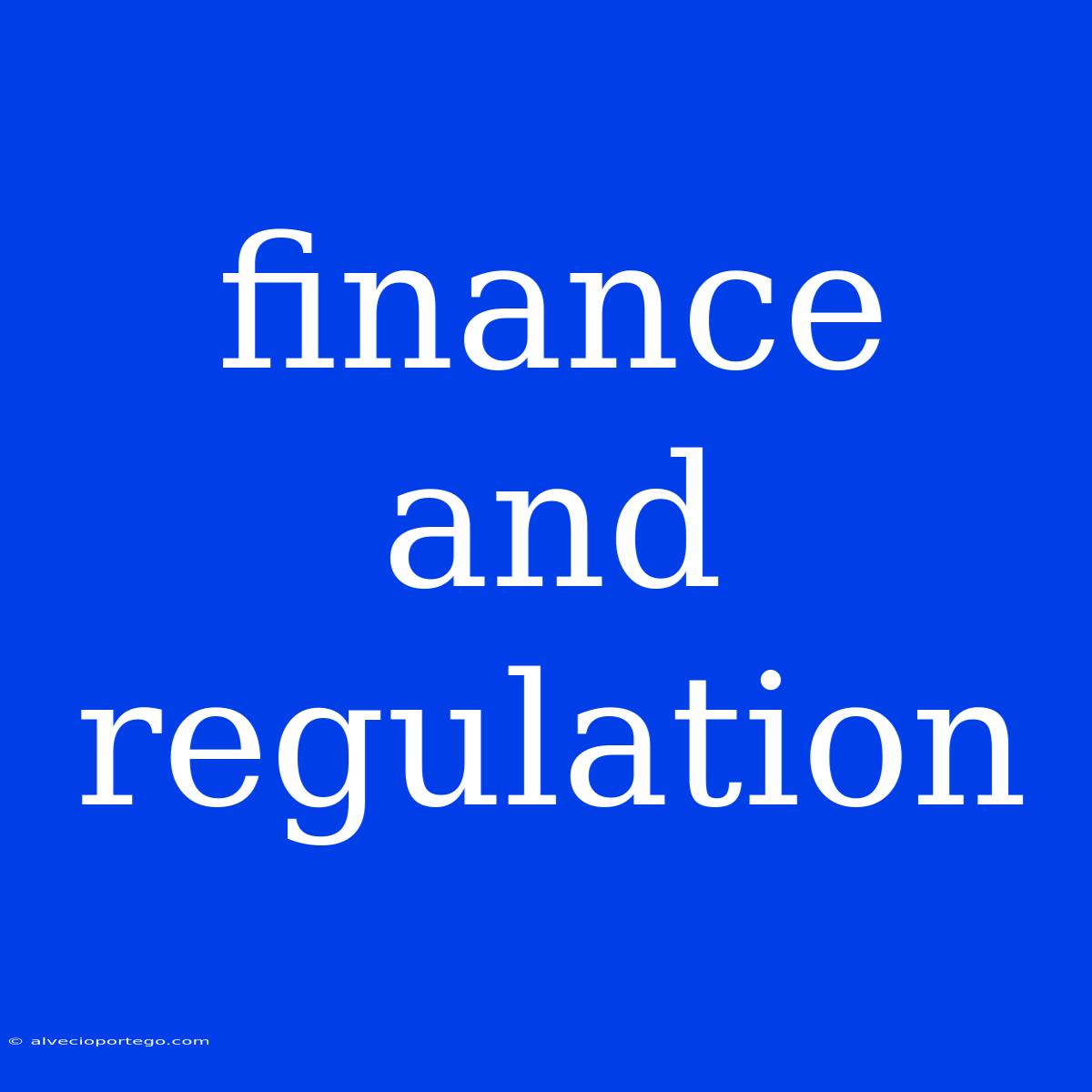Finance and Regulation: A Complex Dance
The world of finance is a dynamic and ever-evolving landscape, constantly shaped by the intricate interplay between financial institutions, markets, and regulatory frameworks. While financial innovation brings about opportunities for economic growth and societal progress, it also presents inherent risks that necessitate robust regulatory oversight. This article delves into the complex relationship between finance and regulation, exploring the key areas where they intersect and the critical role regulation plays in safeguarding the financial system and promoting stability.
The Need for Regulation in Finance
Financial systems are inherently susceptible to instability due to their interconnectedness and the potential for systemic risk. Unchecked financial activity can lead to:
- Financial crises: History is replete with instances of financial crises triggered by unchecked speculation, excessive leverage, and systemic failures. The global financial crisis of 2008 serves as a stark reminder of the devastating consequences of unregulated financial markets.
- Market manipulation and fraud: The absence of effective regulation can create opportunities for unethical actors to engage in market manipulation, insider trading, and other forms of fraud, undermining investor confidence and market integrity.
- Consumer protection concerns: Without proper regulatory safeguards, consumers can be vulnerable to predatory lending practices, unfair contracts, and other exploitative financial products.
Regulation aims to mitigate these risks by:
- Setting standards for financial institutions: Regulations establish capital adequacy requirements, stress tests, and other measures to ensure the stability and resilience of financial institutions.
- Enhancing transparency and accountability: Disclosure requirements, reporting obligations, and audit trails promote transparency and accountability in the financial system, making it more difficult for misconduct to go undetected.
- Protecting consumers: Regulations aim to safeguard consumers from unfair lending practices, deceptive advertising, and other forms of financial abuse.
The Balancing Act: Innovation vs. Regulation
While regulation is crucial for safeguarding the financial system, it must strike a delicate balance to avoid stifling innovation and hindering economic growth. Overly restrictive regulations can create barriers to entry for new businesses, dampen entrepreneurial activity, and stifle the development of innovative financial products and services.
Finding the right balance requires:
- Flexibility and adaptability: Regulatory frameworks must be flexible and adaptable to keep pace with the rapid evolution of the financial sector and the emergence of new technologies like fintech and cryptocurrencies.
- Focus on principles-based regulation: Instead of imposing rigid rules, regulators should focus on establishing clear principles and guidelines that allow for flexibility and adaptability while ensuring core objectives are met.
- Collaboration and dialogue: Effective regulation requires open communication and collaboration between regulators, industry stakeholders, and consumers to ensure that regulations are informed by real-world experience and address evolving challenges.
The Future of Finance and Regulation
The future of finance and regulation is likely to be characterized by continued innovation, evolving regulatory landscapes, and the need for constant adaptation. Key trends to watch include:
- The rise of fintech and digital finance: The emergence of new technologies like blockchain, artificial intelligence, and big data is transforming the financial landscape, demanding new regulatory approaches to address the unique risks and opportunities these technologies present.
- Growing importance of international cooperation: As financial markets become increasingly interconnected, effective regulation requires greater international cooperation to ensure consistency and coordination across borders.
- The need for greater data-driven insights: Leveraging data analytics and advanced technologies will be crucial for regulators to identify emerging risks and proactively shape regulatory responses.
In conclusion, finance and regulation are inextricably intertwined, with each influencing and shaping the other. Striking the right balance between innovation and regulation is crucial for promoting financial stability, protecting consumers, and fostering economic growth. As the financial landscape continues to evolve, regulatory frameworks must adapt and evolve alongside, ensuring that they remain relevant and effective in safeguarding the financial system and enabling responsible financial innovation.

